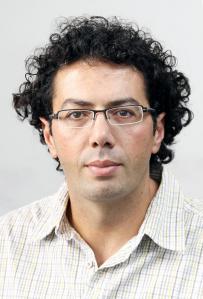Darker Horizons Ahead: Rethinking the War on ‘IS’ | Ramzy Baroud
 Ramzy Baroud
Ramzy Baroud -- World News Trust
July 29, 2015
As much of the Middle East sinks deeper into division between competing political camps, the so-called "Islamic State" ("IS"

continues its unhindered march towards a twisted version of a Muslim caliphate. Many thousands have lost their lives, some in the most torturous ways, so that "IS" may realize its nightmarish dream.
Of course, violence meted out by "IS" is hardly an anomaly, considering that the group was spawned in a predominantly violent environment. It is difficult to imagine, for example, that, if the Syrian regime and its opposition had sought a political solution from the early days of the uprising, "IS" would have found a stable foothold for itself in Syria.
It was during the emergence of violence by the Syrian regime that "IS," a dark force that neither believes in democracy, civil rights nor co-existence, appeared. The same scenario was repeated in Iraq and a host of other countries. In an article in the Independent newspaper, Patrick Cockburn highlighted seven countries where the influence of "IS" is great or growing: Afghanistan, Iraq, Syria, Yemen, Libya, Somalia and north-east Nigeria.
The group’s “successes have been possible because it is opposed by feeble, corrupt or non-existent governments and armies,” he wrote.
However, very little emphasis has been placed on the root cause of the problem and its resulting violence. Western governments and media are not the only party guilty of discussing the brutality of "IS" outside proper political or socio-economic contexts; Arab governments and media are particularly invested in misconstruing the narrative. Arab countries’ official media often misinterpret each crisis in the region in so convenient a way in order to justify their own foreign policy or military adventures.
more
http://worldnewstrust.com/darker-horizons-ahead-rethinking-the-war-on-is-ramzy-baroud
